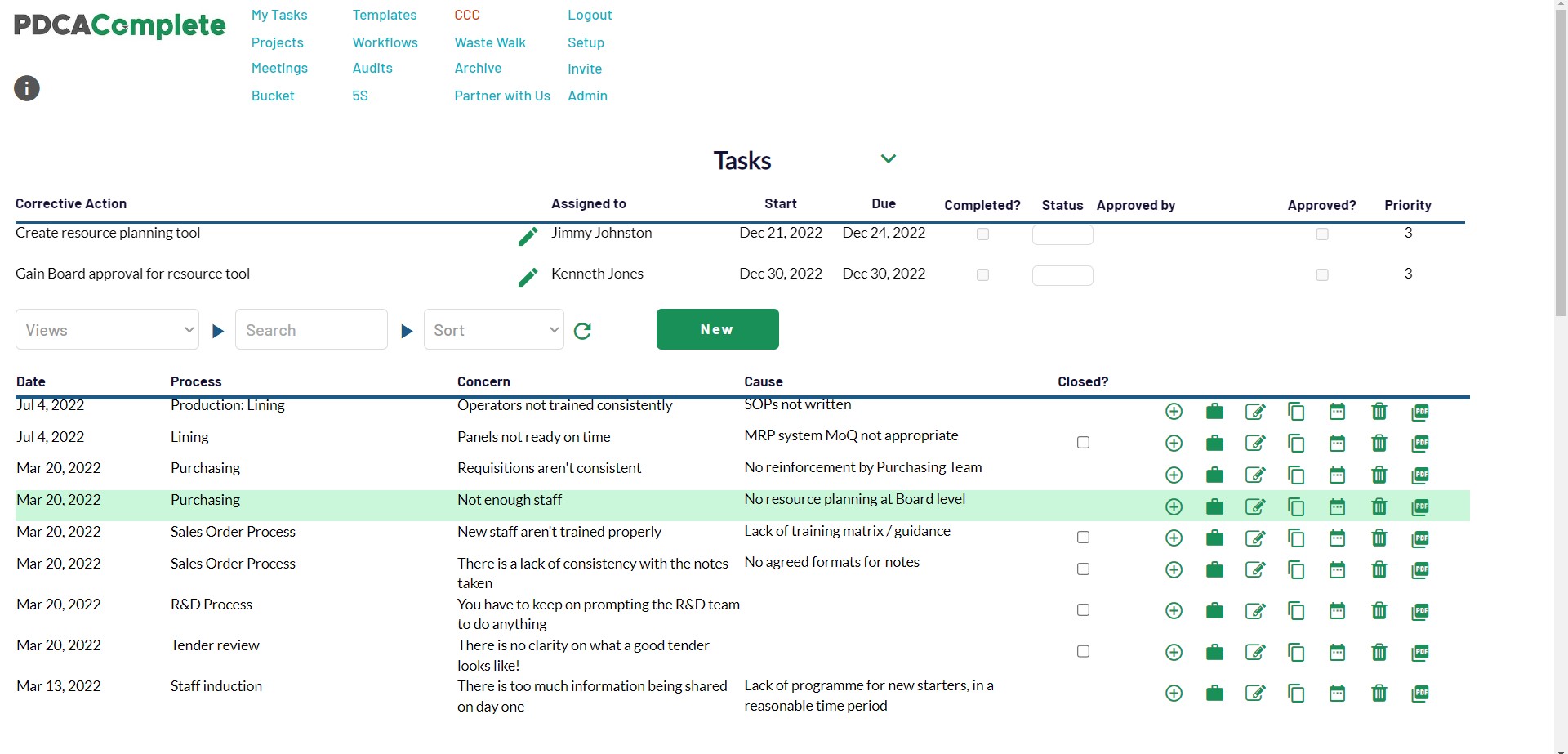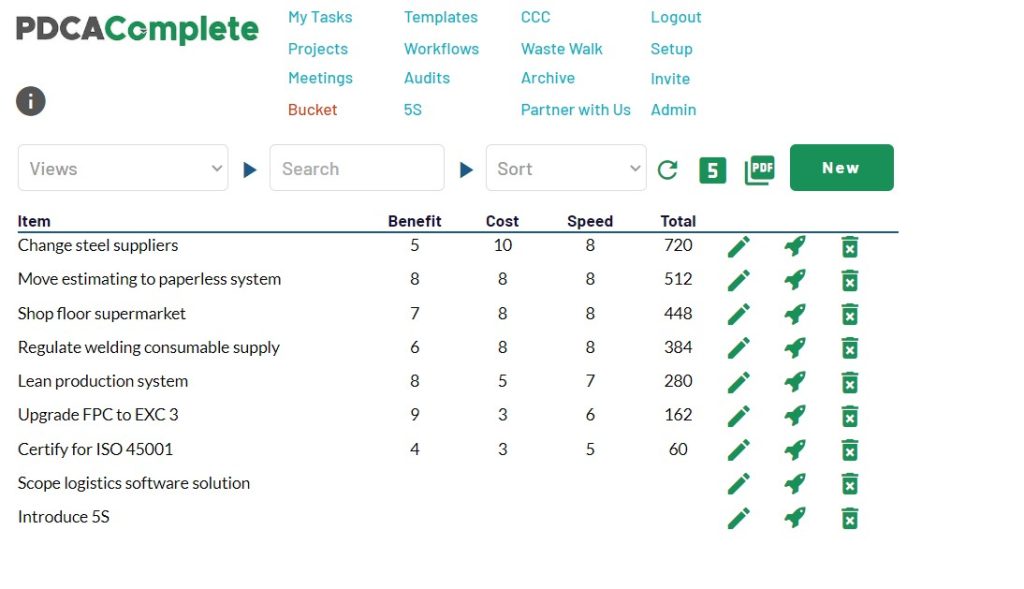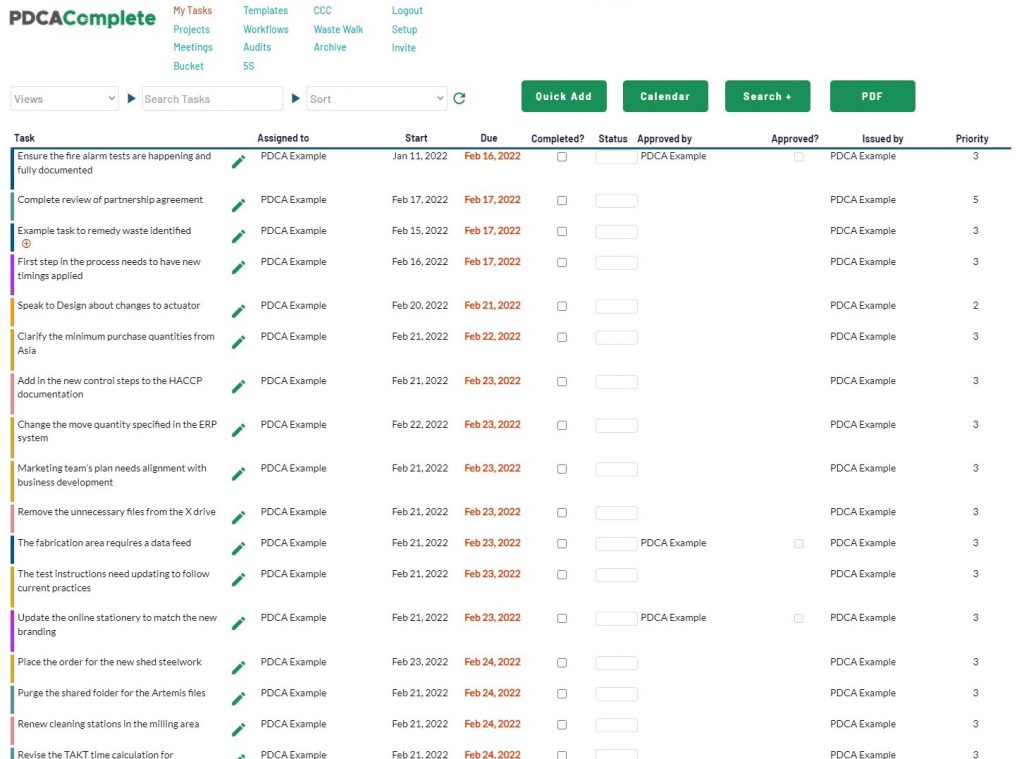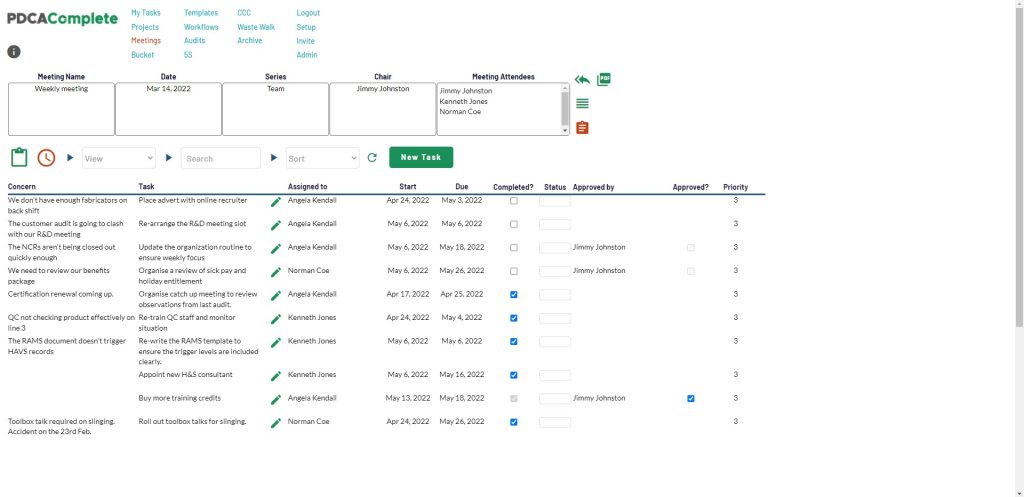There is much to be said for being brilliant at the basics. Many organizations are looking for a new ‘edge’, or technique to improve performance. Others focus on nailing the basics. Often, it is the latter companies, that get the basics right, that get the best business results.
As the business speaker Jim Rohn used to say (this is not verbatim!):
“To be exceptional you don’t have to do exceptional things. You just have to do the basics exceptionally well.”
What are the basics that we need to do exceptionally well? Two that come up time and time again are:
- Writing tasks down and issuing them.
- Planning improvement projects effectively.
For the first point, there is a Chinese proverb that fits well here:
“It is better to have a short pencil than a long memory.”
It amazes me that people don’t write things down. I don’t know about you but as soon as I leave a conversation I’m bombarded. Phone calls, conversations, emails, messages / notifications. Being able to recall everything, when you need it, is a herculean challenge!
Inoculation
As this topic is a basic people issue, trying to be ‘brilliant at the basics’ can bring up grumbles from your team. A great way to deal with this is the idea of inoculation.
This approach is to think of the resistance you might get from your team and have an answer ready prepared. This deflects their comments so that you can focus them onto what you want them to do.
What are some of the comments I’ve heard on my travels about this topic?
- I don’t have time to write things down…
- I’ll remember it, don’t worry!
- I’m a grown up.
And some typical responses:
- It takes seconds to write things down.
- You’ve forgotten about X. Y and Z, so let’s not rely on our memories!
- Being accountable and organised is for grown ups!
I hope you get the idea. Use it if you think you’ll get some resistance at trying to be brilliant at the basics of task management.
Benefits
If you take up the approach at being brilliant at capturing and flushing tasks, what will happen?
- You’ll get more things done.
- You’ll get the right things done.
- You won’t get as stressed from missing tasks and deadlines.
- Accountability is clearer amongst your team.
- Managing expectations is easier.
- You can help your team to organize themselves.
Remember, organisation leads to effectiveness and then to efficiency. Capturing tasks and executing them moves you away from firefighting and being reactive.
Habits
Overcoming inertia is one thing. Making this way of working a habit for your organization is another. Whilst this can be a massive topic in its own right, let me boil this down.
- Decide if the results are worth it.
- Share the reasons with your team (the purpose, or why).
- Define a routine to carry out the tasks you want to be a habit.
- Use the routine as a crutch until your team perform the tasks unconsciously.
This is a simplification. However, one that I hope you can use to help you form the right habits. As the habits start to take hold, these kinds of actions will become normal. When they become normal, your culture changes.
Overview of PDCA Complete
Ok, so you’ve landed on our website and may be wondering how our system helps.
PDCA Complete is a fast, web based, task management system. It has a range of features that aren’t common in other online task systems. Let me give you a really quick overview here:
- My Tasks. This is the nerve center that allows you to see all your tasks in one place. This includes the tasks you have assigned, need to approve or are a stakeholder of.
- Meetings. Capture actions from your routine meetings. Create meeting records (minutes) as you progress through the meeting. Actions are automatically distributed.
- Projects. Create clear project scopes with our built in PID (Project Initiation Document) approach. Define tasks, again being automatically distributed.
- Workflows. Define and schedule routine process tasks from your standard task durations. Launch one at a time or launch them against a recurring schedule.
- Audits. Quickly review your organization’s activity against your agreed standards. Create actions when something isn’t going to plan and let the tasks flow to the assigned person.
- Mobile version. Do all the above on the go via your mobile phone.
This isn’t rocket science
I’m sure that you can agree that none of this is rocket science.
Know what needs to be done, by who and for when. Write it down. Manage it and make sure the results are achieved.
We’ve even built in an approval function into PDCA Complete’s tasks. If you want a second person to approve a task as being complete, that’s in there. Your team can’t just check off a task to clear their pile. Let’s be grown ups here. If it isn’t done, it isn’t done.
We’ve also made our meetings and project screens easy to use so you can see what has been completed and what hasn’t. The archive function has full search functionality, just in case you need to dig through there.
Being brilliant at the basics around task management isn’t rocket science. We designed PDCA Complete to match this idea.
Free account
To get you started, without risk, we offer a free account.
This allows you to use PDCA Complete with two colleagues for no charge. All the functions I have touched on here are available to you.
If you want to expand your team, or use some of the premium features, then you can upgrade your account to a paid subscription.
You can find the details of the pricing here.
To get started with your free account, sign up here.
Be brilliant
I hope this article has given you some ideas you can take back into your business. When you document tasks and review them on a regular basis progress accelerates. It really is that simple.
We’re bombarded every day with more tasks. Being organized doesn’t have to be difficult. When you have the tasks captured you can review them. You can sort the important out from the unimportant. You can respond to the urgency of tasks appropriately. You can then build a path to higher levels of productivity.
Enjoy your journey!



